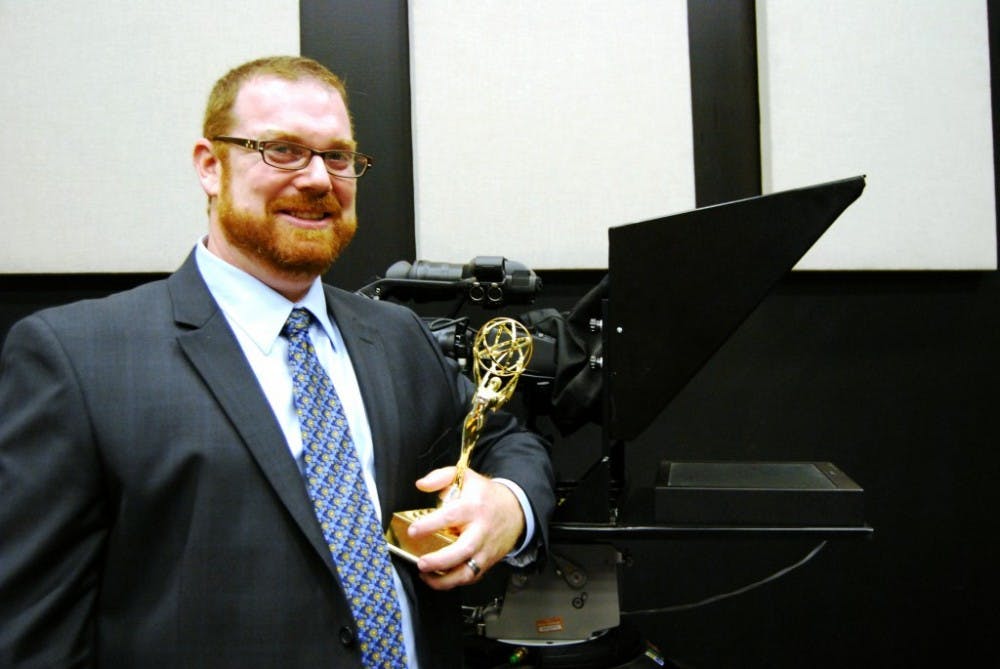The annual Emmy Awards ceremony acknowledges that one of the greatest measures of success is recognition. Exceptional talent, that which raises the already elite standards of the television production industry, is awarded.
Redefining "the best" is by no means easy, but Max Negin, a communications professor at Elon University, wasn't daunted by the prospect.
Negin was recently awarded an Emmy for his production work at the Vancouver Olympics, the third of his career.
Negin started weaving his vast web of contacts as an undergraduate at Rowan University and began working at ESPN after graduation.
"The way to get most of these jobs is the networks that you build while you're in school," Negin said. "The professors are great and have great connections, but I got most of my jobs through connections with classmates or co-workers."
A contact at ESPN helped secure Negin a position at Comcast Sports Network, which he held for a brief time before teaching at Camden County Technical School in New Jersey. He made his name known by freelancing while working full-time as a teacher.
Not long after Negin began covering sports games with local broadcasting stations, Jon Slobotkin, the producer for the Philadelphia Phillies at the time, called Negin and asked him to learn a new tapeless recording systemcalled Ecriture Video Simulation, EVS. Of the three men charged with the task, Negin was the only one able to master the skills needed.
"I learned how to run the machine, called an Elvis, by trial and error, asking questions and having a really patient producer," Negin said.
Slobotkin then asked Negin to travel with the team to cover both home and away games, a proposition he eagerly accepted. The production team he joined was awarded an Emmy for its coverage of the last Phillies game at the Veterans Stadium Sept. 28, 2003.
"Doing that particular show was an honor," said Slobotkin, now vice president and executive producer at Comcast Sports Group. "Max's efforts were extraordinary. Without all the skills he brought, no one would have recognized that as the award-winning show. In all the games I've worked and all the places I've traveled, I've never worked with anyone as skilled as Max at the EVS position. There is nobody better than him."
Despite his demonstrated talent as an EVS operator, Negin later switched to a more stationary job working in promotions at FOX Philadelphia.
"Promotion is totally different from doing video," he said. "It's a hybrid between sales and news. It was a time to learn more editing skills and more story telling skills."
During his first year at FOX, Negin was nominated for an Emmy for editing, and during his second year, he was awarded an Emmy for writing promotional announcements.
"The award is individual by name, but I didn't do it (by myself)," Negin said. "One of the keys (to success) is being able to work well with others. It's one of the biggest skills you have to learn."
When the management structure at FOX changed, Negin became the broadcast coordinator for the Philadelphia 76ers and also spent time editing for HBO. A connection through that job landed Negin a position with NBC, covering the 2006 U.S. Open.
He then had the opportunity to serve as the digital replay operator during the Olympics in both Beijing and Vancouver with NBC. With his production team in Vancouver, Negin was awarded his third Emmy, a tribute to his work ethic and ability to work with others.
"You do have to have talent to succeed, without question. But how you present yourself and how you act in a group of people makes a huge difference," Negin said. "In the long run, it'll catch up with you if you're not able to get along with others."


